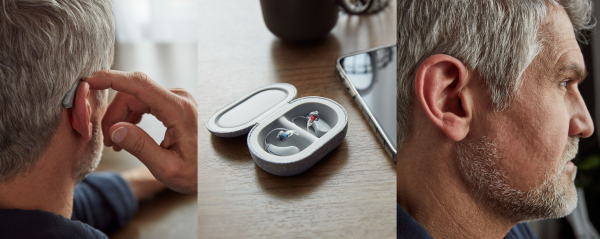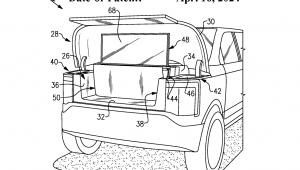OK, Boomer, Listen Up

Until recently, only two kinds of hearing-assistance products were available. At the high end are traditional hearing aids. Their sale is restricted; they regulated by the FDA and are fitted by a Doctor of Audiology (an “audiologist”). Getting a hearing aid might involve an audiology exam, a prescription, and an often costly purchase. But for anyone suffering substantial hearing loss, a consultation with an audiologist, and a high-end product, are essential.
At the low end of the scale are personal sound amplification products (PSAPs); these are not considered to be medical devices, are not cleared by the FDA and cannot legally be called hearing aids. Their principle benefit is low cost.
But what if your hearing is getting fuzzy – not bad – just not what it used to be – and you're looking for a good tech solution? Recognizing that need, the FDA approved sale of hearing aids directly to consumers with mild to moderate hearing loss. These products are classified as Class II medical devices and they are called hearing aids, but they not regulated by the FDA.
One of the first offerings in the category comes from Bose: the SoundControl Hearing Aids, which will be sold direct-to-consumer. No consultation, no exam, no prescription. The SoundControls are similar in appearance to traditional hearing aids. They weigh about 0.1 oz each, and fit behind the ear. The standard (non rechargeable) 312 zinc-air batteries last about four days, figuring 14 hours/day use. They are compatible with iOS and Android devices, and use low-energy Bluetooth, but they don't stream music and calls – they are for hearing assistance.
As you might expect, setup and tweaking is done via a CustomTune app. You can dial in volume levels, and treble/bass response. For example, you can choose to boost frequencies in the vocal region to improve speech intelligibility. You can also choose to boost sound from a specific spatial area, such as in front of you, or choose a more surround boost. Presets let you rapidly choose a setting that's best for a particular situation. To help optimize setup, Bose offers a free video chat. Bose claims that in a clinical study at Northwestern University, CustomTune “yielded results that were as good if not better than those achieved by traditional prescription-fitting methods used by audiologists.” But note that they are not claiming that their hearing aids overall are as good as, or better than, traditional hearing aids.
SoundControl Hearing Aids are available in North and South Carolina, Massachusetts, Montana, and Texas starting on May 18, with other states to follow soon. Cost is $850/pair. There is a 90-day, risk-free trial. They are eligible for FSA and HSA reimbursement. You can find more information here as well as a screening tool.
Bose is the first major entrant to this market, but I suspect others will follow. For example, Sennheiser recently sold its consumer audio business to Sonava, a Swiss company specializing in hearing care. Similarly, Jabra's parent company, GN Group, is a hearing-aid manufacturer.
We don't think twice about someone wearing glasses, but if someone is wearing a hearing aid they are considered old. As a result, many people decline to remedy the problem and instead endure the problems associated with hearing loss. With consumer-friendly audio companies like Bose getting into the market, and selling the hearing aids as straight retail products, hopefully the stigma will diminish.
Now, let's suppose you have mild hearing loss. But you really, really don't want to wear hearing aids. I'll point out that these days tons of people wear something stuck in their ears. And anyway - screw what other people think. What is there to lose? Whether it is through a tally of birthdays, or a few too many loud rock concerts, many of us have lost some hearing. The only other thing we have to lose is not getting some hearing back.
One more thought: If you're like me, you've spent a lifetime spending money on audio gear with the sole aim of improving sound quality. A CD player with better D/A converters. A receiver with more power. A loudspeaker with flatter midrange reponse. The goal is to make things sound better. So why would purchasing hearing aids be any different?





























































